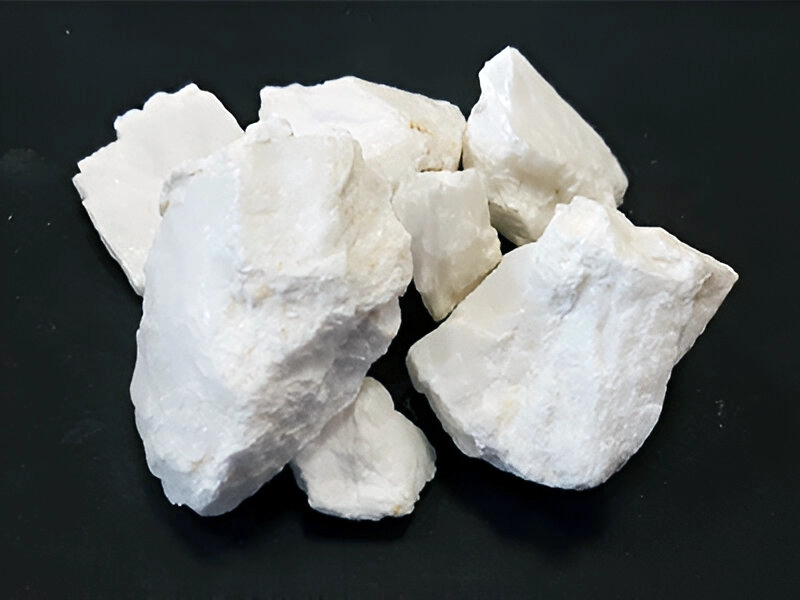Barite, also known as baryte, is a mineral composed of barium sulfate (BaSO₄). It is recognized for its high specific gravity—one of the highest among non-metallic minerals—typically around 4.5. This property, along with its chemical inertness and relative abundance, makes barite highly valuable in various industrial and commercial applications.
The most prominent use of barite is in the oil and gas industry, where it serves as a weighting agent in drilling muds. During the drilling process, heavy mud is needed to counteract high-pressure zones encountered deep underground and to prevent blowouts. Barite’s density makes it ideal for this role, helping to stabilize the borehole and transport drill cuttings to the surface. Over 70% of the barite produced globally is consumed by the petroleum industry.
Aside from oil and gas, barite is also used in medicine. It is a key ingredient in barium meals—a type of contrast agent used in X-ray imaging and other diagnostic procedures. When ingested or introduced into the body, barite helps to outline the digestive tract on radiographs, allowing for better visualization of abnormalities. Its non-toxic nature (despite containing barium) makes it safe for these internal uses, provided it remains in its insoluble sulfate form.
Barite is also utilized in the production of paints, plastics, and rubber. It acts as a filler or extender, improving product consistency and adding weight without affecting color or reactivity. In the automotive and electronics industries, barite is used in radiation shielding materials and soundproofing components.
Its high density makes it suitable for shielding against gamma and X-ray radiation, especially in hospitals, laboratories, and nuclear facilities.
The main producers of barite include China, India, Morocco, and the United States. China dominates the global barite market, both in production and exports. As demand continues to grow, particularly due to oil and gas exploration and medical technology, the stability of barite supply has become a point of concern for several countries.

In conclusion, barite is a versatile and essential mineral that supports critical industries including energy, healthcare, and manufacturing. Its unique physical properties, especially its density and inertness, make it irreplaceable in many high-performance and safety-focused applications around the world.
Barite is used as a weighting agent for drilling fluids in oil and gas exploration to suppress high formation pressures and prevent blowouts. As a well is drilled, the bit passes through various formations, each with different characteristics. Other uses are in added-value applications, which include filler in paint and plastics, sound reduction in engine compartments, coat of automobile finishes for smoothness and corrosion resistance, friction products for automobiles and trucks, radiation-shielding cement, glass ceramics and medical applications.

| Property | Specification |
|---|---|
| Specific gravity | 4.2 gr/cm3 (min) |
| Soluble alkaline earth metals as calcium | 250ppm (max) |
| Water soluble solids | 0.1% (max) |
| Apparent viscosity before/after adding of gypsum | 125/125cps (max) |
| PH at room temp. & 180°F | 6.5 (min) |
| Residue on ASTM sieve No:200 | 3w.t% (max) |
| Residue on ASTM sieve No:325 | 10±5 w.t% |
| Particles less than 0.6 µm | 30%w (max) |
| Moisture | 0.2% (max) |